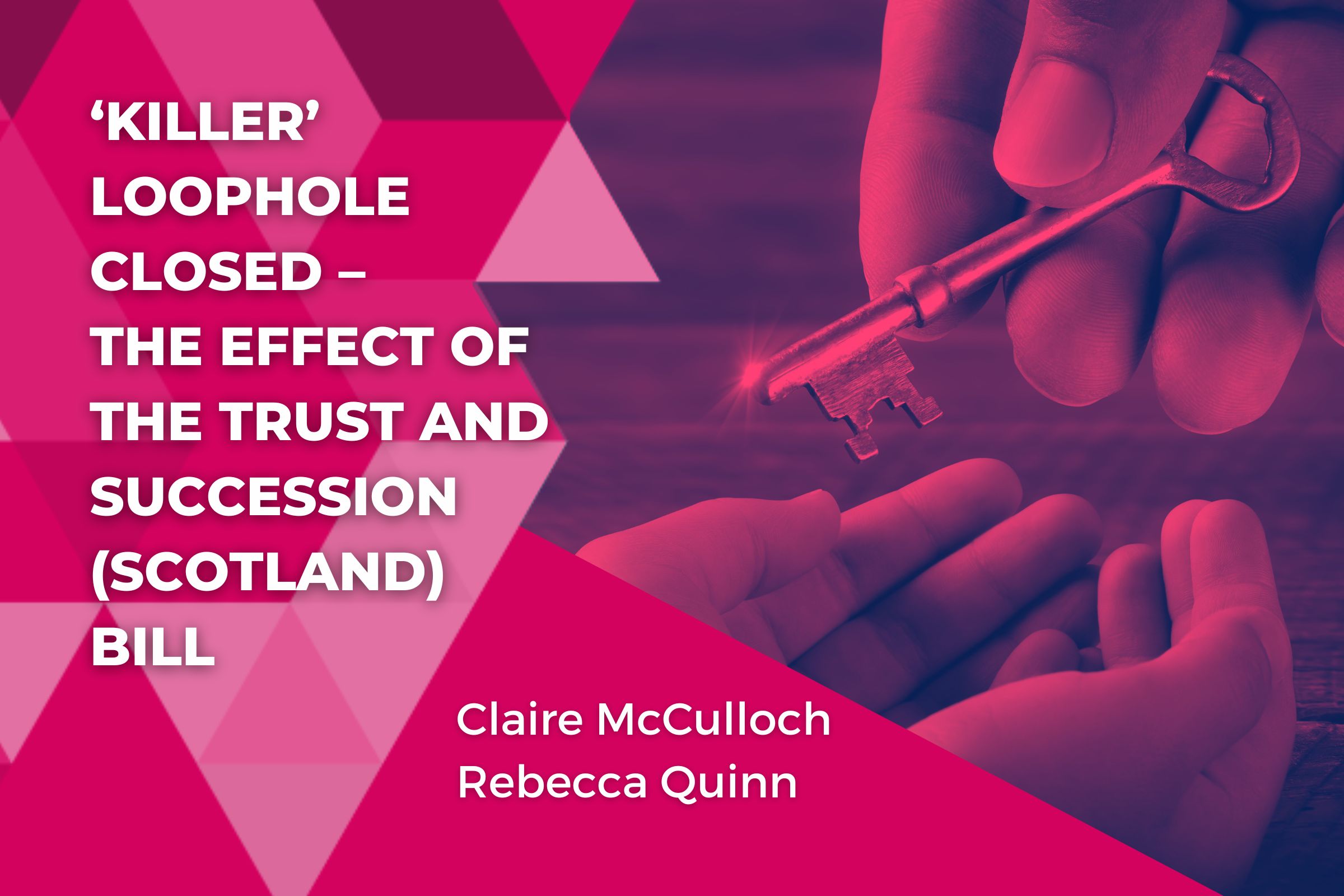Planning for the future can be difficult. It becomes even more so when someone doesn’t write down their wishes in a Will. This is what is called ‘intestacy’. It simply means that a person has died without setting out how they want their estate (e.g. a house, bank accounts, investments) to be handled and distributed.
If someone dies without a Will, then their estate will be divided up among their family members according to a piece of legislation: The Succession (Scotland) Act 1964. This Act contains the rules for how property is divided up and who will inherit that property.
The law works in such a way that the deceased’s spouse or civil partner, along with any children that they have had, will be entitled to a share in the deceased’s property. However, the rules operate according to a hierarchy, meaning that some people in a family may be entitled to more than others. Furthermore, the rules become more complicated if someone has had a previous relationship and has children from that relationship.
The important point to understand is that if someone dies without a Will or any evidence of how they had planned for their estate to be distributed among their family, it can result in a lot of heartache. A very lengthy and drawn-out process can result, where parents, children and more distant relatives compete for different pieces of an estate or sums of money. This can be particularly difficult where people are hoping to receive some kind of payment of money, or allocation of property which may not actually exist.
























